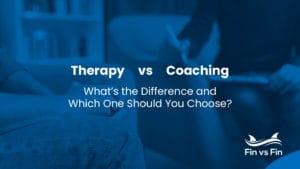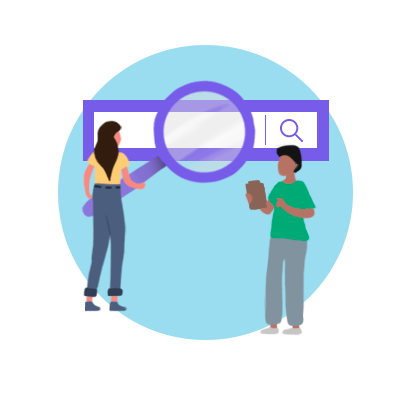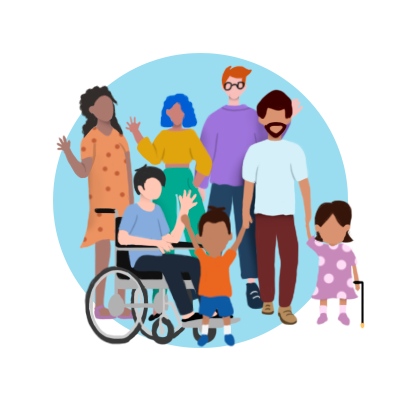Life coaching has emerged as a strategy for overcoming personal and professional challenges. Distinct from therapists and counselors, life coaches focus on helping their clients identify their strengths and meet future goals. While life coaches don’t have to undergo regulated training, like therapists, various life coaching certification courses are available.
In this article, we’ll provide a comprehensive overview of what to expect from life coaching, the benefits it can provide, and how to make the most of your life coaching sessions.
A life coach is an individual who motivates and supports clients through personal and professional challenges to help them achieve their goals. A life coach isn’t a licensed medical professional, like a therapist or counselor.
What to Expect From a Life Coach
In your first session, you can expect to sit down with your life coach (either in person or over video call) and answer a series of questions about your strengths, challenges, and future goals. In the initial session, your life coach may also talk to you about their approach and make recommendations to help you reach your goals.
Examples of recommendations that life coaches may make include:
- Breathing exercises and breath regulation
- Mindfulness exercises, such as mindful walks
- Journaling to help process the coaching experience
- Filling out questionnaires or homework to help you hone in on your goals, track your progress, and more
In your first session with a life coach, you may be asked to answer fairly personal or difficult questions. Talking to a stranger about your current situation and future goals can feel unnatural for some. However, this will get easier as you get to know your life coach. Additionally, good life coaches aim to create a comfortable, judgment-free environment for their clients.

What Issues Do Life Coaches Deal With?
Life coaches can help with a variety of challenges and concerns, including:
- Self-confidence and self-acceptance
- Stress management
- Low motivation
- Indecisiveness
- Procrastination
- Fear of failure
- Addressing unhealthy habits
- Professional or social dissatisfaction
- Major life events and life changes
- Communication difficulties at work or in relationships
- Leadership skills
- Sense of purpose
- Financial challenges
Life coaches can help with burnout by suggesting strategies for managing stress and setting more effective professional, social, and personal boundaries.
Related reading: Topics to Be Coached On- Discovering What People Want From Coaching
Can Life Coaches Treat Mental Health Conditions?
While many people find life coaches to be helpful for stress and anxiety, they can’t diagnose or formally treat mental health conditions like depression and anxiety. Life coaches can’t prescribe medications for these conditions, and life coaching isn’t an alternative to therapy.
It’s also important to note that, unlike therapists, life coaches aren’t required to adhere to strict health privacy laws, like Health Insurance Portability and Accountability Act (HIPAA). While your life coach likely follows their own ethical guidelines, they aren’t required by law to keep your information private.
If you’re struggling with symptoms of a mental health condition, such as extreme mood changes, significant fatigue, persistently low mood, or fears that interfere with your ability to concentrate, a mental health professional is better equipped to provide the care that you need.
Benefits of Working With a Life Coach
Working with a life coach may provide several benefits, including help:
- Improving work/life balance
- Reducing worries and stress
- With more effective communication
- With healthier relationships and conflict resolution skills
- Building a stronger sense of purpose
- Improving creativity
- Improving financial security
Are Life Coaches Certified?
Life coaches aren’t required to obtain any certifications or complete specific training. This is in contrast to therapists, who must earn a degree in social work, psychology, marriage and family therapy, or counseling to apply for a license.
However, several optional life coaching courses and certifications exist, including:
- The Institute for Professional Excellence in Coaching (iPEC) is widely considered one of the most comprehensive life coaching certification programs available. It spans 7 to 9 months and allows life coaches to earn 3 certifications. It’s also accredited by the International Coach Federation (ICF).
- Integrative Wellness Academy offers a 6-month long Master Life Coaching Program. By completing this course, life coaches earn an advanced-level master certification.
- Health Coach Institute offers a Dual Life and Health Coaching Certification. This course is widely respected as a health-centric certification for life coaches, and it takes around 6 months to complete. It’s also ICF-accredited.
To vet prospective life coaches, you may check if they’ve completed any life coaching courses or obtained relevant degrees. Additionally, some life coaches specialize in certain areas, such as career, health, wellness, relationships, finance, family, and social difficulties.
Choosing a life coach also comes down to connectivity. For some, finding a coach with an approach that you work well with is more important than seeking out specific certifications.
How to Prepare for a Coaching Session
Your life coach may provide a questionnaire or other forms to complete before your session. But, aside from these forms, you can prepare for a session by:
- Making a list of concerns you want to address, such as stress, burnout, or relationship issues
- Noting your personal goals, both short and long-term
- Noting the progress you’ve made since adopting your coach’s suggestions (if it’s not your first session)
- Listing any questions or concerns you have about the coaching process that you’d like your coach to answer
Many life coaches suggest that their clients keep a journal. Journaling can help you keep better track of your progress, making it easier to prepare for upcoming sessions.
First Coaching Session Questions
Some of the most common questions that life coaches ask during the first session with a client include:
- What are your primary goals for life coaching?
- How will you know if you’ve achieved your goal?
- What’s standing between you and your goals?
- What are your strengths?
- What would make this conversation meaningful for you today?
- How do you measure success?
- How can this conversation help you with the challenges you’re facing?
You may also want to ask your coach a few questions in the first session, such as:
- How would you describe your coaching style or approach?
- Are there areas that you specialize in?
- Do you have any certifications? If so, from where?
- How do you follow up with clients between sessions?
What Do Life Coaches Do in a Session?
In addition to asking questions, clarifying your goals, and discussing challenges, your life coach may use a variety of techniques, including:
- Visualization
- SMART (specific, measurable, achievable, relevant, and time-bound) goal setting
- Mindfulness and meditation
- Breathing and relaxation exercises
- Open-ended questioning
- Holding you accountable for your goals
- Helping you practice gratitude
- Reflective journaling
How to Get the Most Out of Coaching
To get the most out of life coaching, it’s important to have an open mind and select a coach whose style works for your needs.
Additionally, try to:
- Be honest. For your life coach to recommend relevant, effective strategies, they need accurate information about your goals, fears, and challenges.
- Journal. Doing so is an excellent way to track and reflect on your progress.
- Expect to be challenged. To make positive changes and implement new, healthier habits, your life coach will likely need to challenge aspects of your thinking and hold you accountable.
- Be consistent. Change takes time, so consistently attending your life coaching sessions is the most effective way to make a lasting improvement in your life.

How Often Should You See a Life Coach?
The best frequency for life coaching sessions can vary from person to person. However, a weekly session lasting 45 minutes to an hour is considered standard, especially in the beginning.
As you continue to work with a life coach, you may opt for less frequent sessions (bi-weekly or monthly). Your life coach may also check in between sessions with virtual messages or quick phone calls.
How Much Does Life Coaching Cost?
Life coaching can cost anywhere from $75 to $250 per hour. You may be able to score a more affordable price through telemedicine platforms that offer coaching, as many of them use a subscription model with a flat monthly rate.
Does Insurance Cover Life Coaching?
Life coaching isn’t covered by insurance. This is because they don’t have an associated medical diagnosis code, and life coaches aren’t licensed to make diagnoses or formally treat mental health conditions.
Summary
Life coaching can be a valuable tool for managing stress, achieving your goals, adopting better habits, and fostering healthier relationships. While life coaching isn’t an alternative to therapy for mental health conditions, it can be used as an adjunct to formal care from a psychiatrist, psychologist, or other mental health professional. Additionally, life coaching can help individuals who would like support for stress, burnout, or major life events.
Frequently Asked Questions (FAQs)
How do I find a life coach?
You can find a life coach through online directories, search engine results, telehealth platforms, and here.
What is the difference between a life coach and a therapist?
A life coach is a coach who helps clients achieve their goals, while a therapist is a licensed and certified mental health professional who can treat mental health conditions.
Are life coaches certified?
Life coaches aren’t required to be certified, but may opt to undergo certification courses.
Is paying for a life coach worth it?
Paying for a life coach may be worth it if you’re having difficulty managing stress, staying motivated, or achieving your goals.
Do you tip a life coach?
You don’t usually tip a life coach.
What are the downsides of working with a life coach?
The main downsides of working with a life coach are that they’re not covered by insurance, aren’t licensed to provide formal mental health care, and aren’t required to adhere to patient protection laws, like HIPAA.
Related Reading

Average Health Coach Salary: Insights for Those Wondering If This Career Is Worth It
With an average yearly salary of $55,672 in the U.S., health coaching is a worthwhile career for those interested in the health and wellness space who want to focus on supporting others. Health coaches in Delaware, Alaska, and Washington DC, as well as in major

Topics to Be Coached On: Discovering What People Want From Coaching
People seek out the services of coaches for a multitude of reasons. Individuals may seek out coaches to assist them in working towards specific or broader goals, whether they pertain to career advancement, personal development, health and well-being, or other life domains. Depending on an

Coach vs. Therapist: What’s the Difference, and Which Is Right for You?
Key Takeaways: Therapists have advanced degrees and formal licensing; coaches may have varied backgrounds and certifications. Therapy focuses on mental health, while coaching focuses on personal development and goal achievement. A therapist is able to diagnose mental health conditions, while a coach can not make













